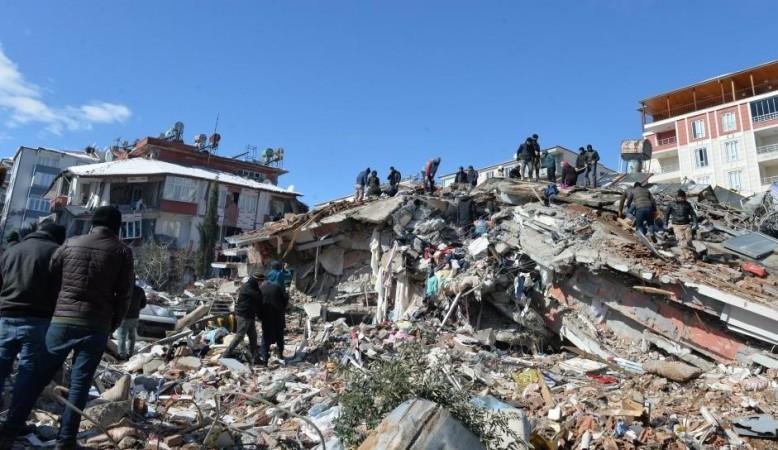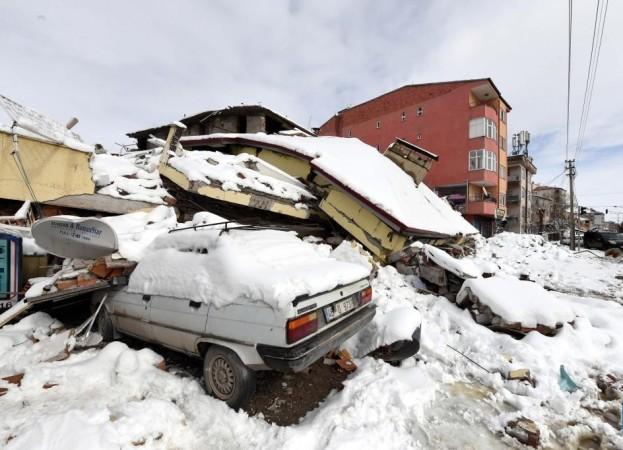The death toll from the devastating earthquakes in Turkey and Syria four days ago has surpassed 21,000, according to latest data released by authorities and rescuers.
The death toll from the earthquakes climbed to 17,674 in Turkey, with 72,879 injuries, Turkish Vice President Fuat Oktay said on Thursday.

In Syria, 1,678 people were killed in government-held areas, and the death toll in the opposition-held region stood at 2,190, according to media reports.
A magnitude 7.7 earthquake struck Turkey's southern province of Kahramanmaras at 4:17 a.m. local time, followed by a magnitude 6.4 quake a few minutes later in the country's southern province of Gaziantep and a magnitude 7.6 earthquake at 1:24 p.m. local time in Kahramanmaras province, Xinhua news agency reported.

International search and rescue teams, including an 82-member Chinese rescue team that arrived in Turkey on Wednesday, rushed to the quake-impacted zone to assist in rescue efforts.
Twin strong earthquakes that struck Turkey's southern provinces on Monday are likely to leave a significant and long-lasting impact on the country's ailing economy, experts said.
Economic Impact
According to the Turkish Statistical Institute, the earthquake-hit zone is home to 13.42 million people and generates one-tenth of Turkey's national income.
The earthquakes could cause more than $1 billion in economic losses in Turkey and Syria, according to the US Geological Survey.

Baki Demirel, associate professor of economics at Yalova University, also said losses will likely be in the range of "billions of dollars."
"This is an enormous disaster, most earthquake-hit towns have turned into ghost cities. This is first a human tragedy, but the human loss will inevitably generate a financial loss," the economist told Xinhua.
Demirel pointed out that the disaster will add to government expenditure as thousands of buildings have been leveled and need to be reconstructed.
Amid rampant inflation
Turks have been battling for several years with rampant inflation and currency turmoil that have hit households hard. A natural disaster of such magnitude further adds to their country's woes.
The expert suggested an earthquake tax on the wealthier segments of society to finance housing projects, leaving the low and mid-incomed exempted from such a scheme.

Ovgun Ahmet Ercan, a well-known seismologist, made a darker prediction.
"The cost of the earthquake to Turkey is between $35 and $50 billion. While Turkey's domestic and foreign trade deficit is 110 billion (US dollars), this earthquake is a complete disaster," he said on Twitter Tuesday.
The country's current account deficit widened due to an increase in energy imports and rising consumer price inflation, which hit a 24-year high of 85.5 per cent in October last year.
The Organisation for Economic Cooperation and Development (OECD) expects inflation in Turkey to remain elevated at 44.6 per cent in 2023.
(With inputs from IANS)
















